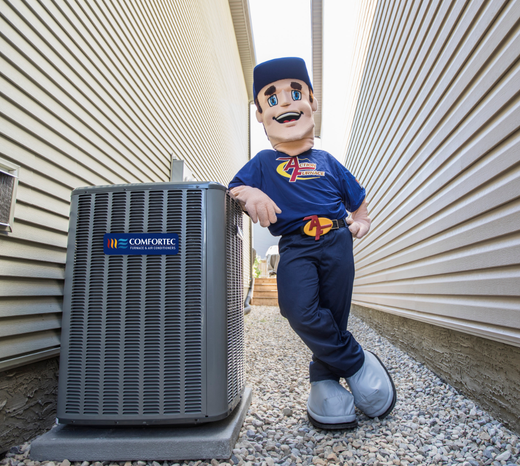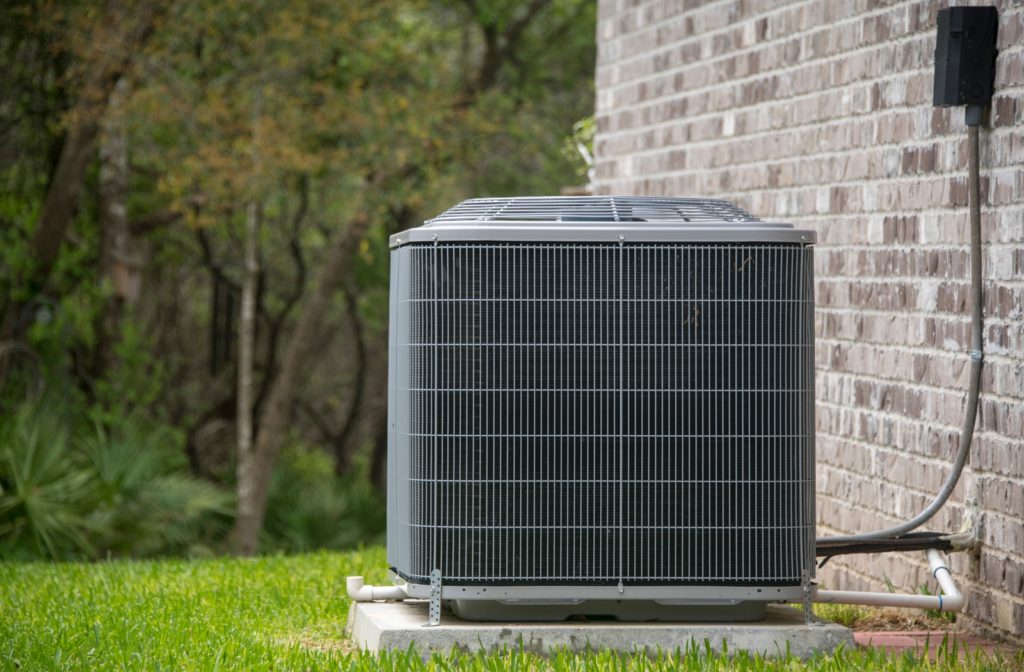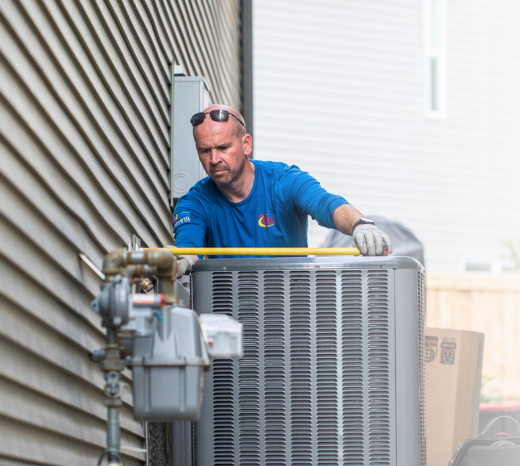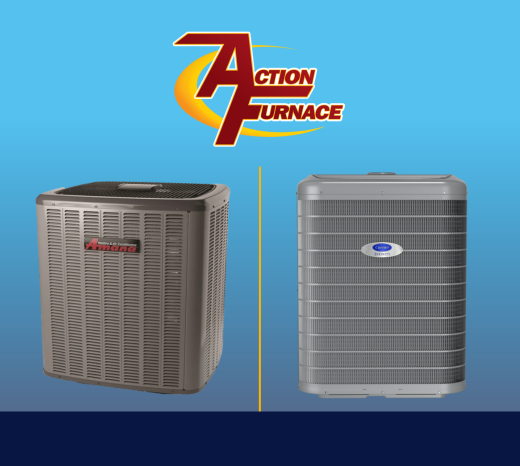Alberta is not known for its sweltering heat. In fact, we often underestimate exactly how hot it can get. Some parts of Alberta get approximately 25 ...

Alberta is not known for its sweltering heat. In fact, we often underestimate exactly how hot it can get. Some parts of Alberta get approximately 25 days of over 30-degree weather per year. Climate records also indicate that Alberta summers are getting hotter.
The best way to keep your home comfortable all year long is to invest in a central air conditioning system.
How Does Central Air Conditioning Work?
A central air conditioner adds cooling capabilities to your home’s pre-existing HVAC system. The air conditioner uses the same basic components and principles as your refrigerator.
The simplest possible explanation is that air conditioning takes the warm air inside your home and moves it outside. Here’s a general overview of how it works step by step:
- Warm air in your home hits the evaporator coil. The coil contains a liquid called refrigerant, which absorbs the heat from the air.
- The freshly-cooled air is released into your home.
- The refrigerant then carries that heat through a compressor and into a condenser coil, which is outside.
- The outside air absorbs the heat from the refrigerant.
- The refrigerant goes through a condenser valve and back into the evaporator coil, where it’s ready to absorb more heat.
Central Air Conditioning Vs. Window Air Conditioning
Both window air conditioners and central air conditioners use the same basic refrigeration cycle. The difference is essentially the scope of the unit’s abilities.
A central air conditioner relies on ductwork, which carries cold air to vents in multiple rooms. Window units, on the other hand, are installed into the open window of a room. They are really only designed to cool one room. If you are looking to cool your whole home, central air conditioning is your best bet.
Window air conditioners are sometimes also criticized for their looks. These units are rather conspicuous and can look bulky and unattractive sitting in the window. On the other hand, the biggest components for central air conditioners are usually outside on the roof or the ground.
What Size Air Conditioner Do I Need?
When you’re looking at air conditioner sizes, you need to match the unit’s output capacity to your home’s air capacity. An air conditioning unit needs roughly 1 ton of air cooling capacity per 400 square feet. You can estimate the air capacity of your home with the following formula:
Your home’s square footage400 = Approximate output capacity required.
If you’re still unsure of what you need, don’t hesitate to ask some expert technicians for help.

What to Expect During & After Installation
During Installation
Each installation is a little bit different. Your experience will probably vary depending on the size of your home, the health of your HVAC system, and the number of technicians working on it. Installing a central air conditioning system could take anywhere between 8 and 14 hours.
Your technicians will most likely do a consultation first to evaluate your home and make sure central air conditioning will work for you. They should be able to give you a time estimate after their evaluation is complete.
After the Installation
Once your installation is complete, you can start enjoying cool air throughout your home.
Central air conditioning units typically last between 12 and 15 years. However, you can extend the life of your unit by investing in annual tune-ups. Scheduling regular maintenance appointments for your air conditioning system ensures you’re not surprised by expensive repairs. It also keeps the unit running more efficiently, which helps you save money on utility bills.
A good air conditioning tune-up will include:
- Comprehensive inspection
- Checking & replenishing refrigerant
- Checking & calibrating the compressor fan
- Parts lubrication
- Measuring air output for comparison at your next tune-up
How to Tell If Your Central Air Conditioning Needs Service?
Even with regular maintenance, central air conditioners do sometimes develop problems. If you can recognize an air conditioner issue, you may be able to have it fixed before it becomes a bigger and more expensive problem.
You should contact one of our qualified HVAC technicians if you notice:
- Warm air coming from the vents
- Water leaks
- Strange sounds
- Bad smells
- Poor airflow
- Unusually-frequent cycling
Central Air Conditioning Is an Investment in Your Family’s Comfort
Alberta summers may be short. But they can still feel brutally hot. Central air conditioning is the best option to keep your entire house cool and avoid sacrificing your windows to unattractive window units.
With central air conditioning, you can spend less time trying to cool down, and more time enjoying fun summer activities with your family. Keep your household comfortable this summer and focus on building memories in your home.


